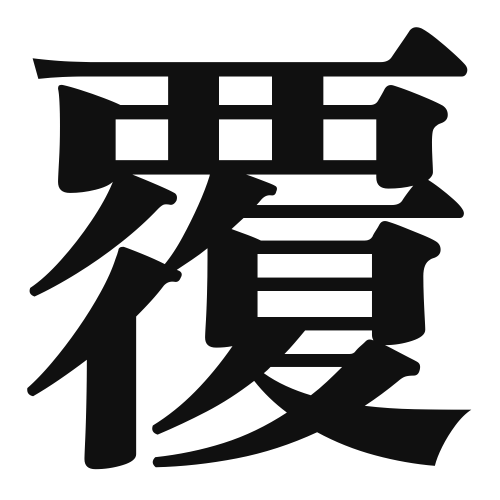1. Overview of Meaning
The kanji “覆” (fuku) means “to cover,” “to overturn,” or “to conceal.” It conveys the idea of something being hidden or protected by a layer or surface.
2. Formation and Radical
Formation of the Kanji: The kanji “覆” is a compound character (会意文字) that combines elements to convey its meaning. It consists of the radical for “clothing” (衣) at the top, suggesting a covering, and the character “覆” (fuku) itself, which relates to the concept of overturning or covering.
Radical: The radical of “覆” is 衣 (koromo), which relates to clothing or covering.
3. Examples of Usage
Common Words and Phrases:
- 覆面 (ふくめん, fukumen) – mask or face covering
- 覆う (おおう, oou) – to cover or to conceal
Example Sentences in Daily Conversation:
- この箱は布で覆われています。 (このはこはぬのでおおわれています。) – This box is covered with cloth.
- 彼は真実を覆い隠している。 (かれはしんじつをおおいかくしている。) – He is concealing the truth.
4. Synonyms and Antonyms
Similar Kanji:
- 隠 (いん, in) – to hide; while “覆” implies covering, “隠” focuses more on the act of hiding something away.
Antonyms:
- 露 (ろ, ro) – to reveal; this kanji represents the opposite action of uncovering or exposing something.
5. Cultural and Historical Background
Relation to Japanese Culture: The concept of covering or concealing is significant in various aspects of Japanese culture, including traditional clothing and art forms that emphasize layers and hidden meanings.
Proverbs and Idioms:
- 覆水盆に返らず (ふくすいぼんにかえらず) – “Spilled water will not return to the tray,” which means that some actions cannot be undone, similar to how something that is covered cannot be easily revealed again.
